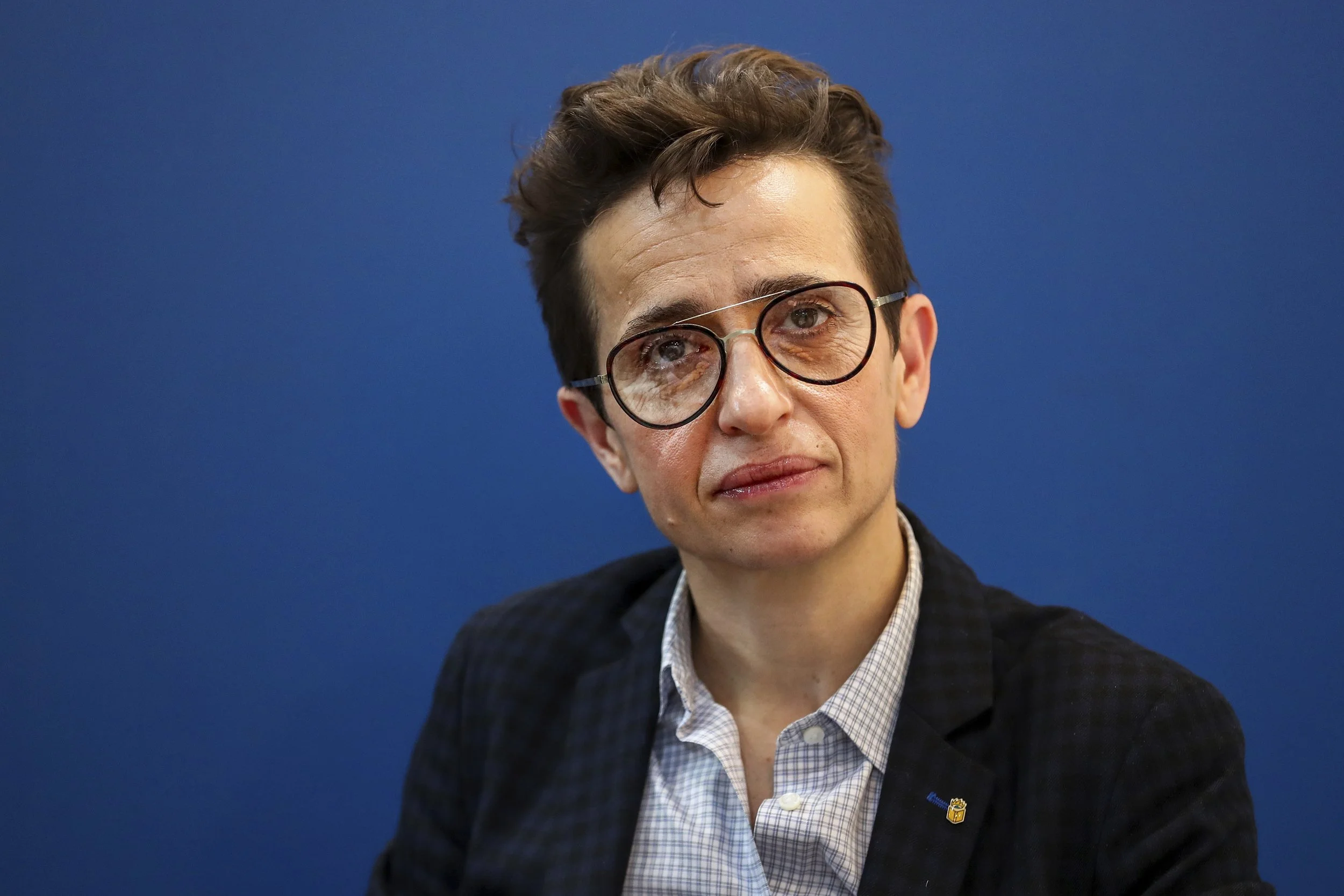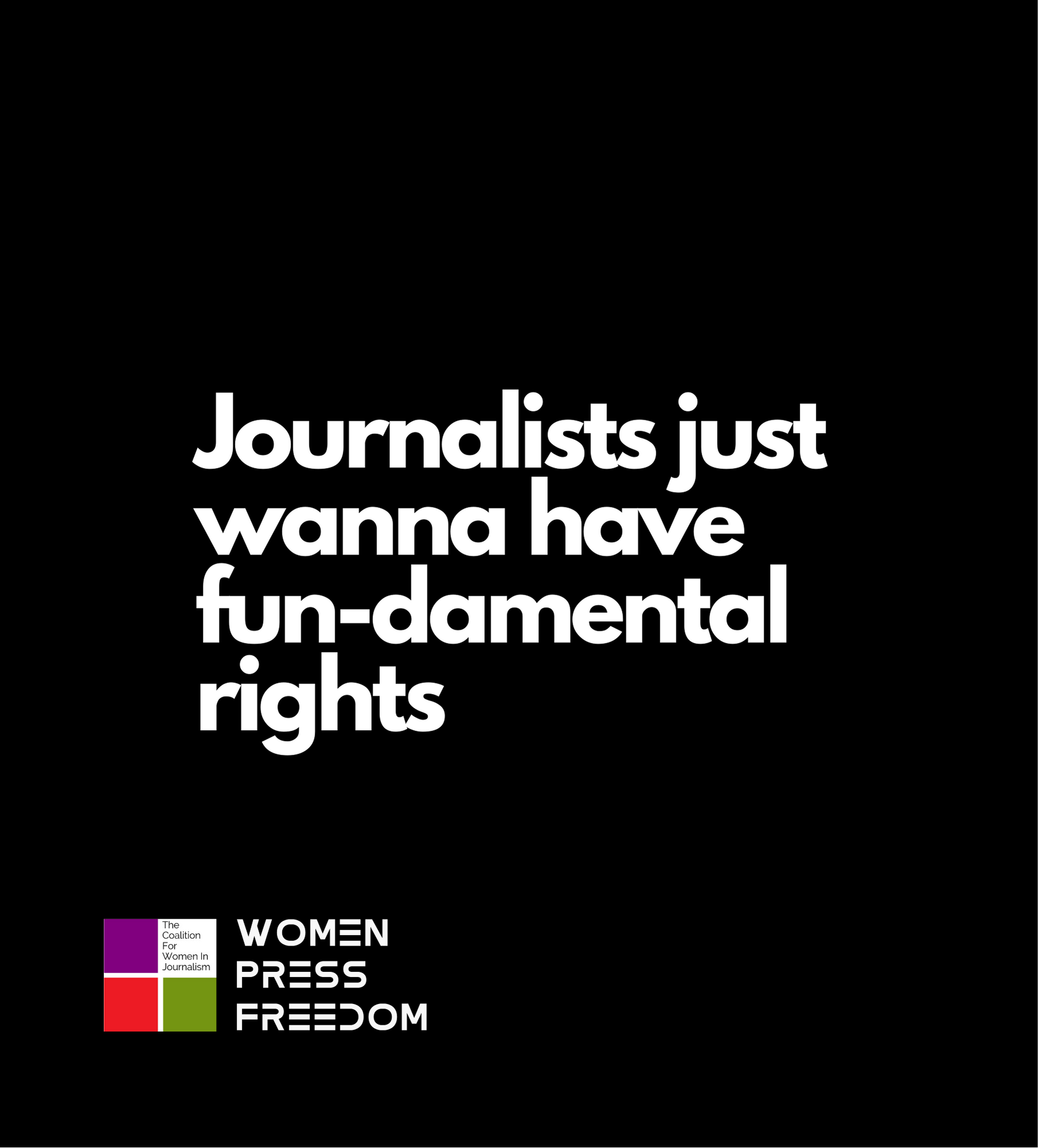Russia: Deportation of Maria Knips-Witting Represents a Grave Threat to Press Freedom
Knips-Witting was informed on June 10 to surrender her accreditation documents
Location: Russia, Moscow
Date: June 10, 2024Women Press Freedom condemns in the strongest terms the Russian Foreign Ministry's decision to revoke the accreditation of Austrian journalist Maria Knips-Witting and order her expulsion from the country. This retaliatory measure, following Austria's expulsion of a Russian correspondent, represents a troubling escalation in the ongoing crackdown on foreign journalists operating in Russia. This action against Knips-Witting is not an isolated incident but part of a broader pattern of increasing pressure on foreign journalists in Russia. In the first four months of 2024 alone, Women Press Freedom documented 45 cases of press freedom violations in Russia — the highest quarterly number since 2019. This alarming rise reflects a systematic strategy by the Russian government to silence dissent and control information. The repression extends beyond Russia’s borders, with exiled journalists facing criminal charges, arrest warrants, and entry bans. Women Press Freedom stands in solidarity with Maria Knips-Witting and all journalists facing unjust actions for their commitment to truth and transparency. We call on the international community to condemn these retaliatory measures and support efforts to safeguard press freedom globally.
The Russian Foreign Ministry has revoked the accreditation of Austrian journalist Maria Knips-Witting and ordered her to leave the country, a retaliatory measure following Austria's expulsion of a Russian correspondent.
Maria Knips-Witting, who has been the Moscow correspondent for the Austrian Broadcasting Corporation (ORF) since January 2024, was informed on June 10 to surrender her accreditation documents. The Russian Foreign Ministry stated that Knips-Witting must leave Russia "as soon as possible."
The ORF expressed regret over the decision. "The ORF regrets the decision of the Russian Foreign Ministry, cannot comprehend it, and will take all necessary steps to ensure independent and comprehensive reporting from Russia for the ORF audience," the broadcaster stated. Knips-Witting is one of two correspondents in the ORF's Moscow bureau.
The Austrian ambassador had pre-emptively informed Austrian media correspondents of potential retaliatory measures. This action comes in response to the case of Ivan Popov, a Tass correspondent in Vienna, whose accreditation and residence permit were revoked on April 30. Popov was required to leave Austria within two weeks. The Russian Foreign Ministry criticized Austria's decision as discriminatory, stating that the Austrian side has yet to provide a justification. "In this context, reciprocal measures were taken against Maria Knips-Witting, a journalist from the Moscow bureau of the Austrian Broadcasting Corporation (ORF)," the ministry added.
Knips-Witting's expulsion highlights a broader pattern of increased pressure on foreign journalists in Russia.
In August and September 2023, Women Press Freedom documented how three prominent foreign correspondents were expelled from Russia amid increasing restrictions on press freedom. Eva Hartog, a Dutch journalist with POLITICO Europe and De Groene Amsterdammer, was informed that her visa would not be renewed after a decade in Moscow, with the decision attributed to "competent authorities." Anna-Lena Laurén, a Swedish and Finnish correspondent critical of Russian Foreign Minister Sergei Lavrov, also had her accreditation revoked after 16 years. Luzia Tschirky of Swiss SRF News resigned as Moscow correspondent due to bureaucratic obstacles following her coverage of the Ukraine invasion, facing disapproval from Russian authorities for her reporting timeline. These expulsions highlight a broader crackdown on foreign media in Russia.
In the first four months of 2024, Russia's campaign against press freedom and dissent intensified, with Women Press Freedom documenting 45 cases—the highest quarterly number since 2019. This rise reflects a strategy to silence dissent and control information challenging the Kremlin. The repression extends internationally, with exiled journalists facing criminal charges, arrest warrants, and entry bans. Women Press Freedom reported 19 cases of transnational repression against women journalists. Foreign journalists, like Ellen Nakashima of The Washington Post, were also targeted; Nakashima was among over 200 people sanctioned by Russia for allegedly spreading hostile and slanderous information about the country.
In February 2024, Women Press Freedom identified 13 women journalists who had been issued an arrest warrant by authorities. Investigative reporters at Mediazona discovered the database containing 96,752 suspects and developed a search tool to identify those indicted. Among those targeted are the Prime Minister of Estonia, Kaja Kallas, U.S. Senator Lindsey Graham, and top human rights officials.
Although some of the journalists listed were known to be on the wanted list, the database has confirmed the addition of several journalists whom Women Press Freedom has reported on previously. Most of the journalists listed are Russians who have fled the country, but there are also journalists from Ukraine included.
Women Press Freedom condemns the Russian Foreign Ministry's expulsion of Austrian journalist Maria Knips-Witting as a blatant attack on press freedom. This retaliatory measure underscores Russia's increasing hostility toward independent journalism and its broader strategy to silence dissent. We stand in solidarity with Knips-Witting and all journalists facing persecution for their commitment to truthful reporting. We call on the international community to denounce these actions and support measures that protect journalists and uphold the principles of free and independent journalism globally.
Women Press Freedom is an initiative by The Coalition For Women In Journalism
The Coalition For Women In Journalism is a global organization of support for women journalists. The CFWIJ pioneered mentorship for mid-career women journalists across several countries around the world and is the first organization to focus on the status of free press for women journalists. We thoroughly document cases of any form of abuse against women in any part of the globe. Our system of individuals and organizations brings together the experience and mentorship necessary to help female career journalists navigate the industry. Our goal is to help develop a strong mechanism where women journalists can work safely and thrive.
If you have been harassed or abused in any way, and please report the incident by using the following form.




































